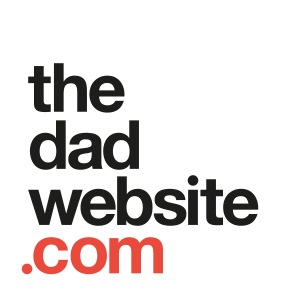Why Your Child’s Best Shot At Health Is At Risk
Ebola. Dengue Fever. Tuberculosis. You might expect these scary diseases to pop up on a top 10 list of global health threats. But “vaccine hesitancy”? That one’s got parents buzzing.
Earlier this year, the World Health Organization (WHO) announced that vaccine hesitancy is now a full-blown concern — threatening the health of millions worldwide. So why aren’t parents rushing their kids to the doctor for a jab of the needle?
Turns out, it’s complicated. The WHO states that vaccine hesitancy is, “the reluctance or refusal to vaccinate despite the availability of vaccines.” It’s a phenomenon that’s got the science and medical community baffled. Even though parents are told that vaccines are safe and effective, they’re still opting out. And pushing facts doesn’t work.
An Old Fear Makes A New Debut
So why, in an age where fact-checking is easier than making mac ’n’ cheese, are parents wary? While most people might believe vaccine hesitancy is a new movement, the fear is old.
The earliest reports of vaccine hesitancy are found in 1796 when Edward Jenner developed the first vaccine. At that time, a terrible disease known as “the speckled monster” was taking lives. Now named smallpox, Jenner was determined to find a solution.
He found a milkmaid who had a cowpox lesion on her hand — an oozing wound that was characteristic of smallpox. Jenner took pus from the lesion and applied it under the skin of an eight-year-old boy who became immune to the disease! However, many people were sceptical about Jenner’s discovery, and it was a long time before he was credited with successfully producing the first vaccination.
Fast-forward to today, and the fears surrounding vaccinations aren’t much different. Many parents question what’s in vaccines and don’t understand how they work, leaving parents uneasy.
Like Jenner found with smallpox, vaccines train the immune system to recognize and combat pathogens (viruses or bacteria). By introducing a tiny part of the virus or bacteria to the body, it learns how to fight it.
But even though we know how vaccinations work, vaccine-hesitant movements are growing —even with overwhelming evidence that vaccines are safe and effective.
The Risks Of A Crisis in Trust
Over the last century, vaccines have made many devastating diseases a distant memory — including smallpox. However, today, we’re experiencing an overwhelming crisis in trust surrounding vaccines. And kids are paying the price — the WHO reports a 30 per cent increase in global measles cases alone.
With the rapid rise in social media, a small minority of vaccine-hesitant voices has transformed into an extreme group of “anti-vaxxers” or “vaccine-refusers.” And it’s everywhere — from Facebook feeds to online parent forums, you’ll see sensational stories about rare, unfortunate vaccination events. Many of these stories are full of misinformation and designed to trigger fear.
And yet, these movements are picking up steam. ‘Anti-vax” has become a powerful brand for celebrities, politicians and the disillusioned to support — sometimes with agendas behind them.
However, while most parents don’t belong in this category, they can’t help being concerned. They’re hearing different opinions at playgroups. They’re seeing posts from friends about vaccination side-effects and wondering, “should I really be injecting my healthy kid with this stuff?”
The answer from the vast majority of medical experts? A resounding “yes.” But what can health professionals do to support parents’ when they’ve got doubts, questions and concerns?
Rebuilding Trust With Parents
Building trust — it sounds easy. However, how does the vaccination community build trust with parents in a 10-minute consultation? Or when immunology isn’t the doctor’s speciality?
We can listen, look deeper and empathise. But that’s not all. Health professionals need education, time and support. They need tools to address all the anxieties of parents.
We also need public health and government institutions to engage with parents directly and take responsibility. We need them to be transparent and honest about the risks and benefits of vaccinations.
Unfortunately, not being open in the past created this crisis of trust. Left to develop unchecked, this distrust is now hurting the work that health professionals do to support parents.
After all, don’t we share something in common? We all want what’s best for our children. We all care about our community. And we all want it to be better.
As parents, we assess risks for our children everyday — and with the constant flood of parenting guides, books and videos, this responsibility grows. Plus, whether in person, on social media or on Google, we look to each other for help.
But it’s not enough. This responsibility needs to be shared by health institutions, government and health professionals too. Because parents need support. They need to feel confident in their decisions. They need the permission to make the right choices for their children.
And hopefully, with an open, honest conversation about vaccinations, the global health threat that’s around the corner will finally be overcome.
Katy Peters is the Founder and Director of the London Vaccination Clinic. Also chairman of the British Global Travel Health Association and founder of the upcoming Global Vaccination Summit, Katy’s mission is to calm down the vaccination conversation so people can make an informed decision with access to the facts.

